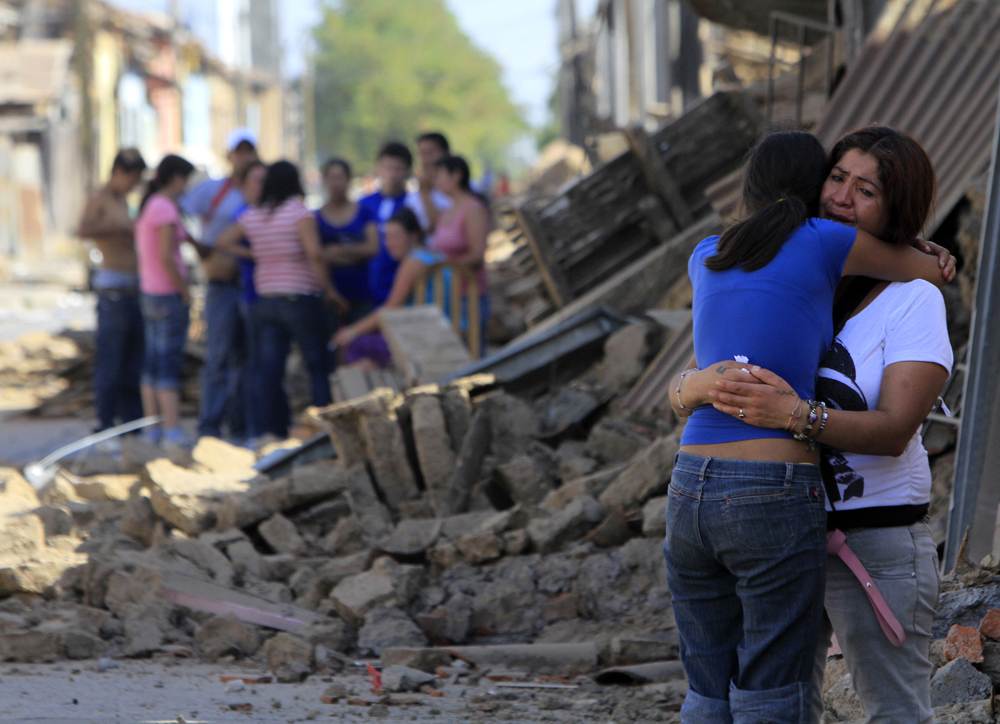Earthquakes killed 780 000 in past decade

More than 780 000 lives were lost as a result of earthquakes over the past 10 years. This is nearly 60% of all disaster-related deaths, according to a study published in The Lancet on Friday.
The study was conducted by Susan Bartels of the Beth Israel Deaconess Medical Center in Boston, Massachusetts, and Michael van Rooyen of the Brigham and Women’s Hospital, also in Boston. They warned that the threat from earthquakes is set to intensify as the world’s population grows and cities expand in vulnerable zones.
“In addition to these deaths, earthquakes have directly affected another two billion people in this period,” it added.
The deadliest quake was the January 12, 2010 7.0-magnitude event in Haiti which killed 316 000 people. This was followed by the December 26, 2004 Indian Ocean tsunami, generated by a 9.1-magnitude temblor, in which 227 000 people died. Third-ranked was the May 12, 2008 7.9-magnitude quake in southwestern China’s Sichuan province, which inflicted a death toll of 87 500.
The review study seeks to give emergency responders and policymakers a snapshot of the scale of earthquakes as a health priority, and to warn doctors about the kind of injuries they are likely to confront.
“Massive earthquakes can result in casualty rates ranging from one to eight percent of the at-risk population. “The reported ratios of death-to-injury vary, but across many studies seems to be about 1-to-3.”
The death toll unfurls in waves, starting with immediate fatalities from falling buildings, which is followed several hours later as people die from catastrophic injuries to internal organs, says the investigation. A third wave occurs in the days to weeks afterward among people with sepsis and multiple organ failure.
Among survivors, the main injuries are crush-related damage to the kidneys, liver and spleen, followed by spinal damage, bone fractures and lacerations. Children are the most vulnerable group, accounting for between 25 and 53 percent of earthquake patients. In the longer term, earthquakes also exert a heavy impact on mental health, with high prevalence of depression.
Beyond immediate search-and-rescue operations, care workers must deal with problems of infectious disease in crowded shelters. Contrary to popular perception, cadavers are not a risk unless there is an outbreak of cholera.
Cities in seismic regions include Tokyo (32 million inhabitants), Mexico City (20 million), Los Angeles (15 million) and Istanbul (nine million), the authors noted. (TerraDaily)

This certainly is a very graphic and horrible reminder of how Mother Nature can unleash her fury upon so many communities.
Another ramification of the impact of such terrible disasters is the ongoing trauma of homelessness and sense of helplessness which can consume communities when their familiar territories become unfamiliar wastelands; where families are decimated; where perhaps some once self sufficient and proud communities become reliant on the help of global assistance. Also when once in the spotlight due to a disaster experienced by some communities, some people feel they are now ‘forgotten’ as time passes and/or another disaster occurs and requires some of the valued assistance and attention is focused elsewhere.
Though, help for many communities continues quietly, the ‘regularity’ of these events over recent times seems to have the human race scramble in so many directions there just doesn’t seem enough of ‘everything’ needed to go around.
Disasters, such as those noted in this story, also have a global effect on the psychy of millions of others, as ‘families’ may be spread far and wide across the planet; our hearts (sense of humanity) are saddened by the devastation; shock of the gravity of the events and increased awareness of human vulnerability; and seeing the suffering of mothers, fathers, grandparents, children (and so on) is heart rending for many.
Unfortunately there will be more of these damaging events into the future. Lets hope that the increased studies of these events and possible prediction of some, may help avert further loss of life and communities, and trauma to many.
[…] Los terremotos causaron 780.000 muertos en la última década thewatchers.adorraeli.com/2011/11/05/earthquakes-killed-7… por drusbi hace 5 segundos […]